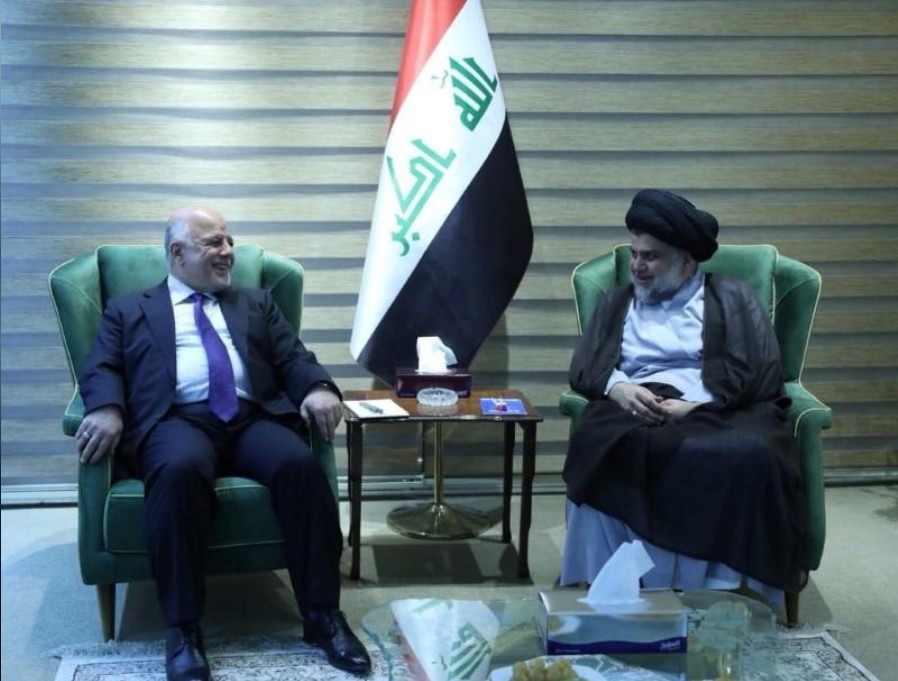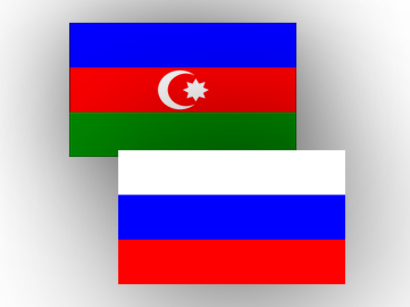
Reuters (23 June 2018)
Ahmed Saeed, Ahmed Aboulenein
NAJAF, Iraq (Reuters) - Prime Minister Haider al-Abadi and cleric Moqtada al-Sadr said on Saturday their political blocs would enter into an alliance, bringing Iraq one step closer to forming a new government after an election marred by low turnout and fraud allegations.
The alliance between Abadi’s Victory Alliance, which came third in a May parliamentary election, and Sadr’s Saeroon list, which won the largest number of seats, increases the chances of forming a government after weeks of political tensions.
“We announce a cross-sectarian, cross-ethnic alliance to speed up forming the next government and to agree on common points that guarantee the interests of the Iraqi people,” Sadr said at a news conference in the Shi’ite holy city of Najaf.
He called for a wider alliance consisting of all components of Iraqi society that would form an inclusive government.
Sadr presents himself as a non-sectarian nationalist opposed to both the United States and Iran’s influence over his country. Saeroon is an electoral alliance between Sadrist politicians, the Iraqi Communist Party, and other secular candidates.
Yet earlier in June Sadr went into an alliance with Hadi al-Amiri, a Shi’ite militia commander with close ties to Iran whose Fatih coalition came second in the election.
There was no immediate reaction from al Amiri’s camp, but the prime minister said his pact with Sadr would not compromise the cleric’s other alliance.
“I affirm that this alliance is not in contrast to any other alliances either of the two lists have previously entered into with other blocs, rather, it flows in the same direction and same principles,” said Abadi.
The top three winning blocs, all Shi’ite-led, have upwards of 140 seats between them. At least 165 seats are needed to form a government although traditionally the ruling bloc in parliament tends to be larger so as to include Sunni Arab and Kurdish lawmakers.
A coalition between Sadr, Amiri, and Abadi could see internal divisions. Abadi had balanced U.S. and Iranian interests during his term and was backed by the West. Sadr says he opposes both, and Amiri is Iran’s biggest Iraqi ally.
Despite coming in third, Abadi is hoping to win a second term as a compromise candidate for the premiership. Analysts and diplomats say he would be weakened and beholden to Sadr and Amiri even if he manages to stay on, however.
Abadi and Sadr both called on the leaders of other blocs to meet and “agree on the coming steps” in order to speed up the formation of an inclusive Iraqi government.
Political leaders in Iraq traditionally hold such meetings after elections as part of the lengthy and often complicated process of forming a coalition government, as no one party ever wins enough seats to form a government on its own.
The process is further complicated this time round because the next parliament is born of an election marred by historically low turnout and allegations of fraud.
The outgoing parliament has mandated a nationwide manual recount of votes and Iraq’s top court upheld that move, which faced legal challenges.
A fire at a storage site housing half of Baghdad’s ballot boxes had raised tensions. Security forces said it was deliberate and made arrests but said most ballots were saved. No party has been identified as responsible yet.
The recount will slow down the process as the new parliament and government cannot be formed until the results are officially ratified by Iraq’s Supreme Federal Court.
Political leaders need to meet soon in order to end that “crisis” and speed up the process, Abadi said.
Reporting by Ahmed Saeed in Najaf; Additional reporting by Huda Majeed; Writing by Ahmed Aboulenein in Baghdad; Editing by Mark Potter and Jon Boyle
https://www.reuters.com/article/us-iraq-election-alliance/pm-abadi-sadr-alliance-brings-iraq-government-closer-idUSKBN1JJ0ZS
No comments yet.
- PROTEST OF MACEDONIA NAME DEAL GETS UNRULY IN GREECE The Balkans 25.06.2018
- NINE EUROPEAN COUNTRIES TO FORMALISE EU DEFENCE FORCE PLAN Europe - EU 25.06.2018
- EU LEADERS CALL FOR JOINT SOLUTIONS TO MIGRANT CRISIS Europe - EU 25.06.2018
-
 WHAT DOES THE EU POSITION ON JUSTICE AND HOME AFFAIRS MEAN FOR EUROPEAN SECURITY?
Europe - EU
25.06.2018
WHAT DOES THE EU POSITION ON JUSTICE AND HOME AFFAIRS MEAN FOR EUROPEAN SECURITY?
Europe - EU
25.06.2018
-
 RUSSIA AND AZERBAIJAN INTEND TO REVIVE AGREEMENT ON FREE TRANSIT
The Caucasus and Turkish-Armenian Relations
25.06.2018
RUSSIA AND AZERBAIJAN INTEND TO REVIVE AGREEMENT ON FREE TRANSIT
The Caucasus and Turkish-Armenian Relations
25.06.2018
-
25.01.2016
THE ARMENIAN QUESTION - BASIC KNOWLEDGE AND DOCUMENTATION -
12.06.2024
THE TRUTH WILL OUT -
27.03.2023
RADİKAL ERMENİ UNSURLARCA GERÇEKLEŞTİRİLEN MEZALİMLER VE VANDALİZM -
17.03.2023
PATRIOTISM PERVERTED -
23.02.2023
MEN ARE LIKE THAT -
03.02.2023
BAKÜ-TİFLİS-CEYHAN BORU HATTININ YAŞANAN TARİHİ -
16.12.2022
INTERNATIONAL SCHOLARS ON THE EVENTS OF 1915 -
07.12.2022
FAKE PHOTOS AND THE ARMENIAN PROPAGANDA -
07.12.2022
ERMENİ PROPAGANDASI VE SAHTE RESİMLER -
01.01.2022
A Letter From Japan - Strategically Mum: The Silence of the Armenians -
01.01.2022
Japonya'dan Bir Mektup - Stratejik Suskunluk: Ermenilerin Sessizliği -
03.06.2020
Anastas Mikoyan: Confessions of an Armenian Bolshevik -
08.04.2020
Sovyet Sonrası Ukrayna’da Devlet, Toplum ve Siyaset - Değişen Dinamikler, Dönüşen Kimlikler -
12.06.2018
Ermeni Sorunuyla İlgili İngiliz Belgeleri (1912-1923) - British Documents on Armenian Question (1912-1923) -
02.12.2016
Turkish-Russian Academics: A Historical Study on the Caucasus -
01.07.2016
Gürcistan'daki Müslüman Topluluklar: Azınlık Hakları, Kimlik, Siyaset -
10.03.2016
Armenian Diaspora: Diaspora, State and the Imagination of the Republic of Armenia -
24.01.2016
ERMENİ SORUNU - TEMEL BİLGİ VE BELGELER (2. BASKI)
-
AVİM Conference Hall 24.01.2023
CONFERENCE TITLED “HUNGARY’S PERSPECTIVES ON THE TURKIC WORLD"









